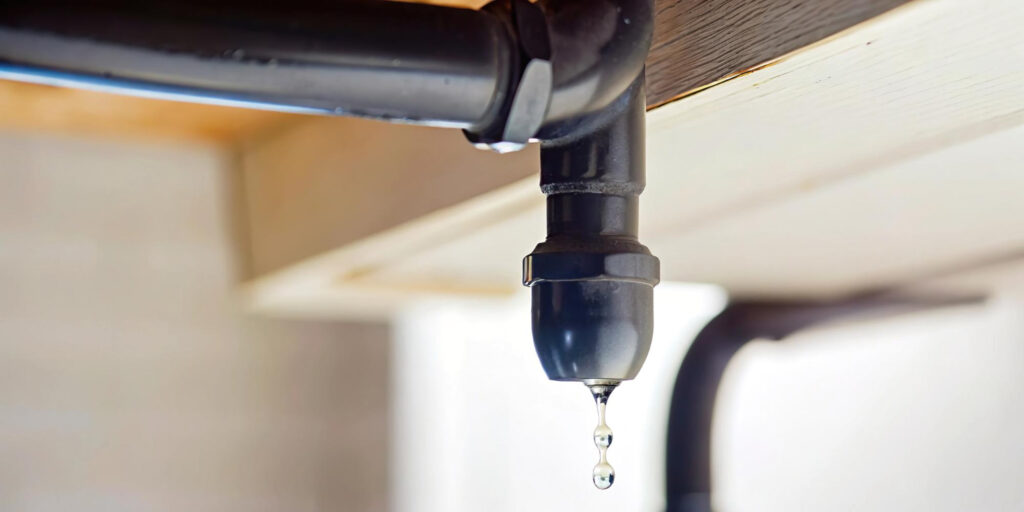Summer in Idaho brings sunshine, outdoor fun, and plenty of backyard barbecues—but it can also bring hidden challenges for your home’s plumbing. As temperatures climb, your system works harder and becomes more vulnerable to wear, tear, and even surprise breakdowns. Understanding how summer heat and everything that comes with it impacts your plumbing can help you prevent costly repairs and keep everything flowing smoothly.
Shifting Soil = Stressed Pipes
Idaho summers are often dry, with soil moisture evaporating quickly under the hot sun. As the ground around your home loses moisture, it contracts. This is particularly evident in the clay-rich soil in Idaho. This movement can cause the soil to shift unevenly, placing stress on buried plumbing lines—especially older ones made from materials like clay or cast iron.
Over time, these shifts can lead to misaligned pipes, cracks, or even collapses in severe cases. You might not notice an issue right away, but small movements underground can escalate into major plumbing problems if left unchecked.
What You Can Do:
- Maintain consistent soil moisture in your yard with periodic watering, especially during extended dry spells.
- Look for early warning signs, such as cracks in patios or uneven lawn sections, which could indicate soil settling.
- Schedule a plumbing inspection, especially if your home is older or if you’ve never had your underground pipes checked.
Increased Summer Water Demand
Between watering the lawn, filling pools, rinsing off muddy feet, and hosting houseguests, summer water usage tends to spike in Boise households. This increase puts more demand on every part of your plumbing system—from pipes and faucets to your water heater and sewer lines.
That extra demand can also expose hidden issues. Small leaks that went unnoticed in the winter can quickly become major problems when the system is working overtime. Likewise, outdated fixtures or worn-out components may start to show their age under summer stress.
How to Reduce Wear:
- Stagger water usage: Avoid running multiple major appliances (such as washing machines and dishwashers) simultaneously.
- Inspect all outdoor spigots and hose connections for signs of leaks or corrosion.
- Watch your water pressure: A sudden drop could indicate a hidden leak or blockage in the system.
- Replace old washers and seals, especially for outdoor faucets that see heavy use during summer.
Don’t Forget the Water Heater
It’s easy to assume your water heater gets a break in the summer, but that’s not always the case. Even though incoming water is warmer, your household may still use just as much—if not more—hot water due to increased activity. Think of all the showers after outdoor workouts, washing summer clothes, and extra loads of dishes from entertaining guests.
Increased summer water use can amplify problems caused by sediment buildup in the tank. Minerals naturally present in Boise’s water supply settle to the bottom of the tank over time. As that sediment accumulates, it insulates the heating element and forces the unit to work harder—reducing overall efficiency and potentially shortening the unit’s lifespan.
Maintenance Tips:
- Flush your water heater annually to clear out sediment and keep it running efficiently.
- Set the temperature to 120°F—this is hot enough for comfort and safety without wasting energy.
- Listen for popping or rumbling sounds, which could signal sediment buildup.
- Have a professional check the pressure relief valve to make sure it’s functioning properly.
Roots on the Hunt for Water
Dry Idaho soil sends tree and plant roots searching for moisture—and that often leads them straight to your water and sewer lines. Even tiny cracks can allow roots to invade, eventually clogging or damaging your pipes.
Watch for these red flags of root intrusion:
- Gurgling toilets or drains
- Persistent slow drainage
- Standing water in your yard
- Foul odors from your yard or fixtures
Avoid planting shrubs or trees over sewer lines and schedule a sewer camera inspection if you notice recurring clogs.
Summer Kitchen Woes
Summer often means more cooking at home—especially grilling, canning, and prepping fresh produce. But this seasonal fun can turn into plumbing trouble if you’re not careful. Things like corn husks, melon rinds, fibrous vegetable scraps, and grease from grilling don’t belong in your garbage disposal.
Quick tips:
- Let grease cool and harden in a sealed container; then dispose of it into the trash.
- Keep fibrous food waste out of your disposal
- Use cold water when running your disposal to help clear debris
Know the Signs of a Stressed System
Some summer plumbing problems aren’t dramatic—but they grow worse over time. Catching issues early can save you money and stress and allows you to take quick action.
Common warning signs:
- Sudden spikes in your water bill
- Unusual pipe noises
- Low water pressure
- Damp spots, mold, or musty smells
- Drains that gurgle or slow down
The best way to protect your plumbing from summer stress is through prevention. A little planning can go a long way in avoiding disruptions and preserving your home’s comfort.
Your Summer Plumbing Checklist:
- Schedule a professional plumbing inspection
- Test outdoor faucets and irrigation systems for leaks
- Keep soil around your foundation moist
- Flush your water heater and test its safety valve
- Know where your main water shutoff is located
- Watch for changes in water pressure and drainage patterns
Need a Hand? Call The Magic Team
If you suspect a plumbing issue—or just want peace of mind—we are here to help. With expert inspections, repairs, and honest advice, we’ll make sure your system is ready to handle anything Idaho summer throws your way. Schedule your summer plumbing checkup with Magic Electric, Plumbing, Heating, Air today!

